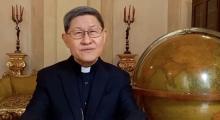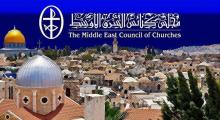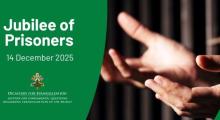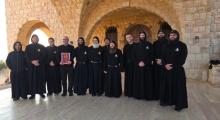Issued by the Catholic Center for Studies and Media - Jordan. Editor-in-chief Fr. Rif'at Bader - موقع أبونا abouna.org
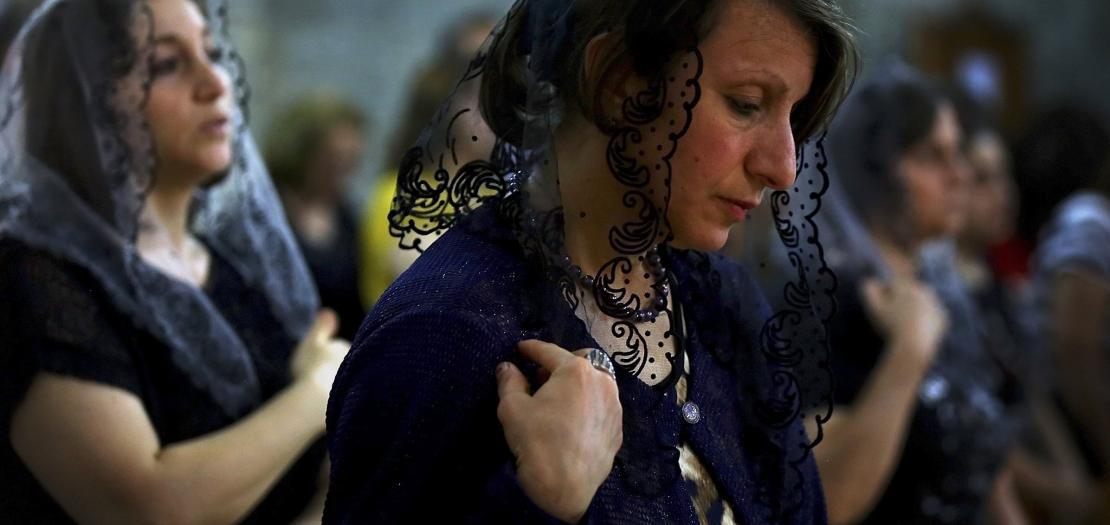
Saddam Hussein was "a dictator", but as is often the case in the Middle East, in turn "praised and exploited" to guarantee himself power and feed "personal interests", starting with "his own family" which "took advantage" of the role of the raìs.
This is why, initially, the Iraqi population "was happy" with the change of regime linked to the US military intervention and accompanied by "democracy, freedom, prosperity and rights propaganda", only to change their mind a few months later.
The Patriarch of Baghdad of the Chaldeans, Card. Louis Raphael Sako, talks to AsiaNews about the US invasion in March 2003 on the 20th anniversary of an event which turned Iraq upside down, later marked by instability, sectarian violence, (Islamic) fundamentalism and widespread corruption. Problems still largely unresolved today, although the situation has improved somewhat.
The invasion
In the early morning hours of Thursday, 20 March 2003, the first US missile hit the presidential palace on the right bank of the Tigris River. The attack marks the start of Operation Iraqi Freedom, the offensive launched by Republican George W. Bush against Baghdad and the ruling Baath regime.
The operation that cost thousands of billions of euro and over 151,000 dead in the four-year period 2003-2006. It was among the most controversial military interventions in modern history, to strike a rogue state accused of hiding weapons of mass destruction, an accusation that was never actually proven.
Three weeks of bombing (with London's support) and a ground invasion ended with the fall of the capital on 9 April, the declaration of victory, the celebratory inscription above the president's speech: "Mission accomplished". And the snapshot of Saddam's statue toppled, an illusion of freedom destined to vanish in an abyss of violence, terror and blood.
"I was in Baghdad for a conference," recalls the Chaldean Primate, at the time a priest in Mosul before his appointment as Archbishop of Kirkuk in September 2003, "and one morning, all of a sudden, we heard a terrible bombardment. We went out into the streets, people were afraid, there was an atmosphere of misery, we didn't know where to go'.
Card. Sako, continues "it was a dictatorial regime that managed to keep the country united, with the exception of the Kurds, guaranteeing order and security". The biggest mistake, along with the massacres and violations committed against the Kurdish minority in the north, was "the war with Iran and the million and more deaths. This event, marked the recent history of the country and it was precisely at that stage that the first exodus began, even of Christians, especially young people who were against the conflict and did not want to answer the call to the front'.
Once the war with the Islamic Republic was over, the phase of the invasion of Kuwait opened, in 1991, also in this case "absurd, destructive, disastrous and in blatant violation of international law". "It is reminiscent," the cardinal stressed, "of what is happening today with the Russian conflict in Ukraine. And the population lived in fear of the bombings, seeking makeshift shelters underground, because there were no anti-aircraft bunkers yet'.
The illusion of freedom
The failure of the US military operation, justified in the UN with the never proven accusation of weapons of mass destruction by Saddam (who was later captured, tried and hanged in December 2006), consists in having totally sunk the nation. A country that was once among the most prosperous and developed in the Middle East, with distinguished schools and universities.
Today, 20 years later, it even struggles to maintain territorial integrity, social cohesion and institutional unity after the dramatic events linked to the Islamic State (before that al-Qaeda) and street protests against the political class.
"In the early post-invasion days," recalls Card. Sako - I was in Mosul and saw soldiers walking in the streets, visiting families. However, in a short time, the climate changed, the open borders allowed fundamentalism to enter, the institutions were unable to control a large country and there was no team capable of providing authoritative leadership. Bremer [Paul, head of the Coalition Provisional Authority, ed] himself governed without knowing the language, mentality, culture. This illusion of freedom soon evaporated, the people disappointed, power groups that had been in exile for 30 years returned, and the nation sank into anarchy, so much so that today, some feel nostalgic for the man'.
"The power vacuum that has been created," the cardinal continues, "has been filled by al-Qaeda, Isis and the Islamic parties themselves, of fundamentalist inspiration, often fighting each other for power and money. A vision of a state has never been formulated, we have suffered interference from neighbouring countries that have served their interests. Iraq is a rich but weak nation in which everyone has been able to steal more or less undisturbed'.
He continues, there is 'great blame on the Iraqis, who have never been able to reach an agreement, leaving the field open to destruction that is perhaps worse than before the fall of Saddam. In everyone's mind, the memory is still vivid of the kidnappings, of the violence even against Christians such as the killing of seven priests and Mgr Rahho, the archbishop of Mosul, between 2007 and 2008. And then the great flight that followed the arrival of Isis, the hundreds of thousands of displaced persons, the problem of militias that in some cases are stronger than the State, the sectarian drift and the divisions between Arabs and Kurds, between Shiites and Sunnis, the widespread and systematic corruption with the enormous flow of money into the pockets of the parties'.
The exodus of Christians
"Under Saddam," says Card. Sako - Christians did not enjoy greater freedom, but they could benefit from a certain climate of security, leave the doors of their homes open, sleep peacefully. Following the invasion, a climate of fear began to reign, which fuelled the great haemorrhaging of a population that was reduced from over one and a half million to about a third'.
However, the post-invasion phase was also an opportunity to 'experience' the beginning of a long path of dialogue and confrontation with the Muslim world and its leaders.
"The Americans,' he recounts, 'had formed a municipal council in Mosul and I was part of it as a Christian representative. At that time, I learnt about the relationship with Muslims. At that time, I met an imam with radical ideas, but gradually a feeling of friendship was created and cultivated over time. Both he and the mayor came to the consecration when I was appointed archbishop of Kirkuk. I think Pope Francis has fully grasped the value of friendship, which can change the relationship with the Islamic world: not theological discourses, but closeness and friendship."
Nevertheless, 20 years after that 20 March 2003, the country is still mired in the quicksand of the crisis, unable to resolve ills that have so far appeared incurable. Against this backdrop, Prime Minister Mohammed Al-Sudani's ambitious reform program, on which regional and international players should not place too much reliance, is likely to be difficult to implement.
Reason and dialogue, often invoked by Christian leaders, seem to be the most realistic position to really start building the future foundations of the country and avert its implosion.
The Chaldean Patriarch concludes, "in this way we will be able to safeguard the precious Iraqi mosaic".



